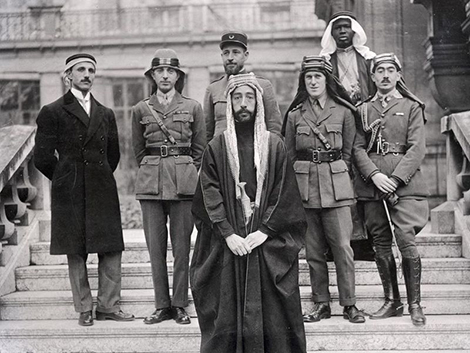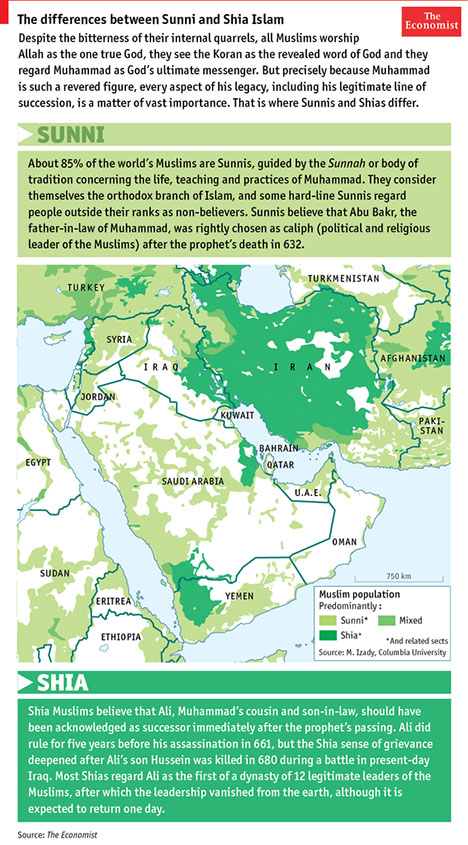This is to note that I have received a research grant from the Qatar Foundation for a study of indigenous knowledge of the seasons and time-telling in the Gulf. I have created a separate webpage to indicate progress through updates on the progress. This page is at https://tabsir.net/?page_id=2903
Category Archives: Saudi Arabia
The Voice of which America?
Commentary on MENA Tidningen.
Ten Ways on How Not To Think About the Iran/Saudi Conflict
by Omid Safi (@ostadjaan), On Being columnist, January 7, 2016
In the last few days, virtually every news outlet has featured a series of stories on the rising tensions between Iran and Saudi Arabia. The conflict by now is well-known: Saudi Arabia executed 47 people, including Shi‘i cleric Nimr al-Nimr. While both Iran and Saudi Arabia are among the worst global executioners of dissidents, the sheer size of these executions was rare even by their gruesome standards. Iran retaliated through bombastic rhetoric, stating, “God’s hand of retaliation will grip the neck of Saudi politicians.†The two countries have broken off diplomatic relations, a tension that has rippled across the region.
The New York Times, arguably the most respected newspaper in America, featured a primer on the conflict that was devoted mostly to discussing succession disputes to the Prophet Muhammad that in due time led to the rise of the Sunni and Shi‘a sects. The Guardian has devoted a long section to this conflict. So has The Economist.
There are many political scientists and public policy pundits that you can turn to for grasping the geopolitics of the situation. You can listen to Vali Nasr, dean of Johns Hopkins School of Advanced International Studies, with NPR’s Renee Montaigne, and on PRI’s The World. But as a scholar of religion, let me share a few points that I think might be useful to keep in mind to think intelligently — and I trust, compassionately — through this latest conflict.
One. In order to understand this conflict, do not start with Sunni/Shi‘a seventh century succession disputes to Prophet. This is a modern dispute, not one whose answers you are going to find in pre-modern books of religious history and theology. Think about how absurd it would be if we were discussing a political conflict between the U.S. and Russia, and instead of having political scientists we brought on people to talk about the historical genesis of the Greek Orthodox Church.
Probably the most succinct elaboration of this point came from Marc Lynch:
“The idea of an unending, primordial conflict between Sunnis and Shiites explains little about the ebbs and flows of regional politics. This is not a resurgence of a 1,400-year-old conflict.â€
The attempt to explain the Iranian/Saudi conflict, or for that matter every Middle Eastern conflict, in purely religious terms is part of an ongoing Orientalist imagination that depicts these societies as ancient, unchanging, un-modern societies where religion is the sole determining factor (allegedly unlike an imagined “us,†who have managed to become modern and secular.) Watch this four-part series by the late, great Edward Said on how Orientalism operates (skip the introduction):
There is no disputing that religion is a factor in understanding the Middle East. In some conflicts, it might even be a primary factor. But it is never, ever the only factor. Most often it is the other factors (history, economics, ideology, demographics) that are much more important.
Religion, religious traditions, and human societies never stay static and unchanging. There is no such thing as an eternal, unchanging human tradition.
For the rest of this commentary, click here.
Geopolitics in the Middle East: A new century dawns

Faisal party at Versailles Conference. Left to right: Rustum Haidar, Nuri as-Said, Prince Faisal (front), Captain Pisani (rear), T. E. Lawrence, Faisal’s attendant (name unknown), Captain Hassan Khadri.
by Jeffrey D. Sachs, al-Qantara, December 21, 2015
There is no doubt that the crisis-riven Middle East is beset by some unique challenges. As Jeffrey Sachs argues, however, these are not the Sunni-Shia political divide, the future of Assad or other doctrinal disputes, but rather the unmet need for quality education, job skills, advanced technologies and sustainable development
The United States, the European Union, and Western-led institutions such as the World Bank repeatedly ask why the Middle East can′t govern itself. The question is asked honestly, but without much self-awareness.
After all, the single most important impediment to good governance in the region has been its lack of self-governance: the region′s political institutions have been crippled as a result of repeated US and European intervention dating back to the First World War – and in some places even earlier.
One century is enough. The year 2016 should mark the start of a new century of home-grown Middle Eastern politics focused urgently on the challenges of sustainable development.
The Middle East′s fate during the last 100 years was cast in November 1914, when the Ottoman Empire chose the losing side during the First World War. The result was the empire′s dismantling, with the victorious powers, Britain and France, grabbing hegemonic control over its remnants. Continue reading Geopolitics in the Middle East: A new century dawns
Blame the Huthis…
Click here for my post on Tigningen about yet another bombing in Aden.
Salman Fishing In Washington
If faith comes from Yemen…

For my post at Mena Tigningen, click here.
Open Access to Middle East Journals and Newspapers
For anyone doing research on the Middle East for the past two centuries, there is an incredible archive online. Details below:
Below is a list of Open Access historical newspapers and other periodicals in Middle Eastern Studies.
Most titles on the list have been digitized by independent projects across the globe and may not have been fully cataloged. It is often difficult to find and access them on the web or through catalogs such as HathiTrust, AMEEL, Gallica, Revues, WorldCat, etc.
We welcome your comments and suggestions of additional titles to include. Please use the comment feature at the bottom of the page.
For the list of active Open Access journals follow this link:
Alphabetical List of Open Access Journals in Middle Eastern Studies
132 titles as of May 14, 2015.




